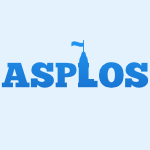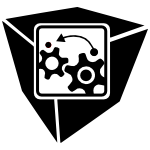54 papers:
 CHI-2015-JonesCDTPDH #delphi #information management #using
CHI-2015-JonesCDTPDH #delphi #information management #using- “For Telling” the Present: Using the Delphi Method to Understand Personal Information Management Practices (WJ, RC, AD, JT, MAPQ, JDD, BMH), pp. 3513–3522.
 HIMI-IKC-2015-UeokaK #interactive #using
HIMI-IKC-2015-UeokaK #interactive #using- Fortune Air: An Interactive Fortune Telling System Using Vortex Air Cannon (RU, NK), pp. 646–656.
 ICML-2015-ShajarisalesJSB #linear
ICML-2015-ShajarisalesJSB #linear- Telling cause from effect in deterministic linear dynamical systems (NS, DJ, BS, MB), pp. 285–294.
 ICML-2015-XuBKCCSZB #generative #image #visual notation
ICML-2015-XuBKCCSZB #generative #image #visual notation- Show, Attend and Tell: Neural Image Caption Generation with Visual Attention (KX, JB, RK, KC, ACC, RS, RSZ, YB), pp. 2048–2057.
 ESEC-FSE-2015-GuJSZL #concurrent #thread #what
ESEC-FSE-2015-GuJSZL #concurrent #thread #what- What change history tells us about thread synchronization (RG, GJ, LS, LZ, SL), pp. 426–438.
 ICSME-2014-PanichellaBPCA #developer #how
ICSME-2014-PanichellaBPCA #developer #how- How Developers’ Collaborations Identified from Different Sources Tell Us about Code Changes (SP, GB, MDP, GC, GA), pp. 251–260.
 CHI-2014-AndrewsB #branch #interactive #visualisation
CHI-2014-AndrewsB #branch #interactive #visualisation- Visualizing interactive narratives: employing a branching comic to tell a story and show its readings (DA, CB), pp. 1895–1904.
 HCI-AS-2014-ChiabrandoFLOPD #case study #experience #named
HCI-AS-2014-ChiabrandoFLOPD #case study #experience #named- TellEat: Sharing Experiences on the Move (EC, RF, SL, FO, CP, DTD), pp. 377–388.
 CIKM-2014-QuattroneNKT #what
CIKM-2014-QuattroneNKT #what- Tell Me What You Want and I Will Tell Others Where You Have Been (AQ, EN, LK, ET), pp. 1783–1786.
 RecSys-2014-LiuWW #what
RecSys-2014-LiuWW #what- Tell me where to go and what to do next, but do not bother me (HL, GW, GW), pp. 375–376.
 HT-2013-GuerreiroG #exclamation #quote #what
HT-2013-GuerreiroG #exclamation #quote #what- “Tell me what I want to know!”: the effect of relationship closeness on the relevance of profile attributes (JG, DG), pp. 230–235.
 CSMR-2013-AnicheOG #case study #industrial #open source #quality #testing #what
CSMR-2013-AnicheOG #case study #industrial #open source #quality #testing #what- What Do the Asserts in a Unit Test Tell Us about Code Quality? A Study on Open Source and Industrial Projects (MFA, GAO, MAG), pp. 111–120.
 CSCW-2013-PanLCL #process #social #what
CSCW-2013-PanLCL #process #social #what- To answer or not: what non-qa social activities can tell (YP, LL, CYC, QL), pp. 1253–1263.
 HIMI-LCCB-2013-LindholmBN #interactive
HIMI-LCCB-2013-LindholmBN #interactive- I See, Please Tell Me More — Exploring Virtual Agents as Interactive Storytellers (DL, EPB, TN), pp. 89–98.
 CIKM-2013-MoffatTS #effectiveness #metric #modelling #what
CIKM-2013-MoffatTS #effectiveness #metric #modelling #what- Users versus models: what observation tells us about effectiveness metrics (AM, PT, FS), pp. 659–668.
 CIKM-2013-SpeicherBG #exclamation #interactive #predict #web
CIKM-2013-SpeicherBG #exclamation #interactive #predict #web- TellMyRelevance!: predicting the relevance of web search results from cursor interactions (MS, AB, MG), pp. 1281–1290.
 SIGIR-2013-Rodriguez-VaamondeTF #documentation #image #using #web #what
SIGIR-2013-Rodriguez-VaamondeTF #documentation #image #using #web #what- What can pictures tell us about web pages?: improving document search using images (SRV, LT, AWF), pp. 849–852.
 ICSM-2012-BasitAHJ
ICSM-2012-BasitAHJ- Things structural clones tell that simple clones don’t (HAB, UA, SH, SJ), pp. 275–284.
 CHI-2012-KuleszaSBK #personalisation
CHI-2012-KuleszaSBK #personalisation- Tell me more?: the effects of mental model soundness on personalizing an intelligent agent (TK, SS, MMB, IK), pp. 1–10.
 ICPR-2012-Gao #what
ICPR-2012-Gao #what- What entropy tells about man-made structures (JG), pp. 250–253.
 SIGIR-2012-GarkavijsTK
SIGIR-2012-GarkavijsTK- GLASE 0.1: eyes tell more than mice (VG, MT, NK), pp. 1085–1086.
 ASPLOS-2012-KasikciZC #debugging #difference
ASPLOS-2012-KasikciZC #debugging #difference- Data races vs. data race bugs: telling the difference with portend (BK, CZ, GC), pp. 185–198.
 CHI-2011-GrandhiSJ #mobile
CHI-2011-GrandhiSJ #mobile- Telling calls: facilitating mobile phone conversation grounding and management (SAG, RPS, QJ), pp. 2153–2162.
 CSCW-2011-MinamikawaY #estimation #what
CSCW-2011-MinamikawaY #estimation #what- Blog tells what kind of personality you have: egogram estimation from Japanese weblog (AM, HY), pp. 217–220.
 VISSOFT-2011-NeuLHD #gnome
VISSOFT-2011-NeuLHD #gnome- Telling stories about GNOME with Complicity (SN, ML, LH, MD), pp. 1–8.
 KDD-2011-MampaeyTV #what
KDD-2011-MampaeyTV #what- Tell me what i need to know: succinctly summarizing data with itemsets (MM, NT, JV), pp. 573–581.
 SIGIR-2011-ThomasJH #quality #what
SIGIR-2011-ThomasJH #quality #what- What deliberately degrading search quality tells us about discount functions (PT, TJ, DH), pp. 1107–1108.
 ICALP-v2-2010-CollinsCGL
ICALP-v2-2010-CollinsCGL- Tell Me Where I Am So I Can Meet You Sooner (AC, JC, LG, AL), pp. 502–514.
 CHI-2010-MullerMF #enterprise
CHI-2010-MullerMF #enterprise- Patterns of usage in an enterprise file-sharing service: publicizing, discovering, and telling the news (MJM, DRM, JF), pp. 763–766.
 CSCW-2010-CaoLHS #deployment
CSCW-2010-CaoLHS #deployment- Telling the whole story: anticipation, inspiration and reputation in a field deployment of TellTable (XC, SEL, JH, AS), pp. 251–260.
 ICML-2010-JanzingHS
ICML-2010-JanzingHS- Telling cause from effect based on high-dimensional observations (DJ, POH, BS), pp. 479–486.
 ITiCSE-2009-Christensen #approach #design #re-engineering
ITiCSE-2009-Christensen #approach #design #re-engineering- A story-telling approach for a software engineering course design (HBC), pp. 60–64.
 IDGD-2009-Gould09a #people #question #usability
IDGD-2009-Gould09a #people #question #usability- Intercultural Usability Surveys: Do People Always Tell “The Truth”? (EWG), pp. 254–258.
 KDD-2009-HanhijarviOVPTM #data mining #mining
KDD-2009-HanhijarviOVPTM #data mining #mining- Tell me something I don’t know: randomization strategies for iterative data mining (SH, MO, NV, KP, NT, HM), pp. 379–388.
 SIGIR-2009-NollYGMS #folksonomy #ranking
SIGIR-2009-NollYGMS #folksonomy #ranking- Telling experts from spammers: expertise ranking in folksonomies (MGN, CmAY, NG, CM, NS), pp. 612–619.
 HT-2008-JatowtKOT #documentation #interactive #modelling #towards #what
HT-2008-JatowtKOT #documentation #interactive #modelling #towards #what- What can history tell us?: towards different models of interaction with document histories (AJ, YK, HO, KT), pp. 5–14.
 MSR-2008-HindleGH #commit #scalability #what
MSR-2008-HindleGH #commit #scalability #what- What do large commits tell us?: a taxonomical study of large commits (AH, DMG, RCH), pp. 99–108.
 CHI-2008-PetrelliWB #named #physics #question #what
CHI-2008-PetrelliWB #named #physics #question #what- AutoTypography: what can physical mementos tell us about digital memories? (DP, SW, JB), pp. 53–62.
 KR-2008-KontchakovWZ #difference #ontology #question
KR-2008-KontchakovWZ #difference #ontology #question- Can You Tell the Difference Between DL-Lite Ontologies? (RK, FW, MZ), pp. 285–295.
 ICSE-2008-YilmazPW #fault #locality #using
ICSE-2008-YilmazPW #fault #locality #using- Time will tell: fault localization using time spectra (CY, AMP, CW), pp. 81–90.
 MSR-2007-RigbyH #analysis #developer #what
MSR-2007-RigbyH #analysis #developer #what- What Can OSS Mailing Lists Tell Us? A Preliminary Psychometric Text Analysis of the Apache Developer Mailing List (PCR, AEH), p. 23.
 ILC-2007-WozniakDW #abstraction #data type #policy
ILC-2007-WozniakDW #abstraction #data type #policy- Dynamic ADTs: a “don’t ask, don’t tell” policy for data abstraction (GW, MD, SW), p. 26.
 HCI-MIE-2007-Alexandris #human-computer #quote #semantics #using
HCI-MIE-2007-Alexandris #human-computer #quote #semantics #using- “Show and Tell”: Using Semantically Processable Prosodic Markers for Spatial Expressions in an HCI System for Consumer Complaints (CA), pp. 13–22.
 SEKE-2007-OliveiraAB #information management #maintenance
SEKE-2007-OliveiraAB #information management #maintenance- Telling Stories about System Use: Capturing Collective Tacit Knowledge for System Maintenance (ACdO, RMdA, MRSB), pp. 337–342.
 IWPC-2005-HouWH #framework #question #what
IWPC-2005-HouWH #framework #question #what- What Can Programmer Questions Tell Us About Frameworks? (DH, KW, HJH), pp. 87–96.
 ECIR-2005-ChevalletLV #image #information management #named #ubiquitous
ECIR-2005-ChevalletLV #image #information management #named #ubiquitous- SnapToTell: A Singapore Image Test Bed for Ubiquitous Information Access from Camera (JPC, JHL, RV), pp. 530–532.
 ICDAR-2003-SimardSBCC #recognition #segmentation #using
ICDAR-2003-SimardSBCC #recognition #segmentation #using- Using Character Recognition and Segmentation to Tell Computer from Humans (PYS, RS, JB, JC, IC), pp. 418–423.
 STOC-2003-AwerbuchAM #online #optimisation
STOC-2003-AwerbuchAM #online #optimisation- Reducing truth-telling online mechanisms to online optimization (BA, YA, AM), pp. 503–510.
 CHI-2003-JackoSSBEEKMZ #feedback #multimodal #performance #question #visual notation #what
CHI-2003-JackoSSBEEKMZ #feedback #multimodal #performance #question #visual notation #what- Older adults and visual impairment: what do exposure times and accuracy tell us about performance gains associated with multimodal feedback? (JAJ, IUS, FS, LB, PJE, VKE, TK, KPM, BSZ), pp. 33–40.
 RE-2002-DarimontDRR #requirements
RE-2002-DarimontDRR #requirements- Requirements Engineering with Grail/Kaos: Tell the Requirements, All the Requirements, and Nothing Else but the Requirement (RD, ED, JLR, AR), p. 299.
 ICDAR-1993-CollinTV #analysis #documentation
ICDAR-1993-CollinTV #analysis #documentation- Don’t tell mom I’m doing document analysis; she believes I’m in the computer vision field (SC, KT, PV), pp. 619–622.
 KR-1989-Poole #reasoning #what
KR-1989-Poole #reasoning #what- What the Lottery Paradox Tells Us About Default Reasoning (DP), pp. 333–340.
 HCI-CE-1987-Soloway #specification #what
HCI-CE-1987-Soloway #specification #what- I Can’t Tell What in the Code Implements What in the Specs (ES), pp. 317–328.
 CSCW-1986-Orr #process
CSCW-1986-Orr #process- Narratives at work: story telling as cooperative diagnostic activity (JEO), pp. 62–72.
 CHI-2015-JonesCDTPDH #delphi #information management #using
CHI-2015-JonesCDTPDH #delphi #information management #using HIMI-IKC-2015-UeokaK #interactive #using
HIMI-IKC-2015-UeokaK #interactive #using ICML-2015-ShajarisalesJSB #linear
ICML-2015-ShajarisalesJSB #linear ICML-2015-XuBKCCSZB #generative #image #visual notation
ICML-2015-XuBKCCSZB #generative #image #visual notation ESEC-FSE-2015-GuJSZL #concurrent #thread #what
ESEC-FSE-2015-GuJSZL #concurrent #thread #what ICSME-2014-PanichellaBPCA #developer #how
ICSME-2014-PanichellaBPCA #developer #how CHI-2014-AndrewsB #branch #interactive #visualisation
CHI-2014-AndrewsB #branch #interactive #visualisation HCI-AS-2014-ChiabrandoFLOPD #case study #experience #named
HCI-AS-2014-ChiabrandoFLOPD #case study #experience #named CIKM-2014-QuattroneNKT #what
CIKM-2014-QuattroneNKT #what RecSys-2014-LiuWW #what
RecSys-2014-LiuWW #what HT-2013-GuerreiroG #exclamation #quote #what
HT-2013-GuerreiroG #exclamation #quote #what CSMR-2013-AnicheOG #case study #industrial #open source #quality #testing #what
CSMR-2013-AnicheOG #case study #industrial #open source #quality #testing #what CSCW-2013-PanLCL #process #social #what
CSCW-2013-PanLCL #process #social #what HIMI-LCCB-2013-LindholmBN #interactive
HIMI-LCCB-2013-LindholmBN #interactive CIKM-2013-MoffatTS #effectiveness #metric #modelling #what
CIKM-2013-MoffatTS #effectiveness #metric #modelling #what CIKM-2013-SpeicherBG #exclamation #interactive #predict #web
CIKM-2013-SpeicherBG #exclamation #interactive #predict #web SIGIR-2013-Rodriguez-VaamondeTF #documentation #image #using #web #what
SIGIR-2013-Rodriguez-VaamondeTF #documentation #image #using #web #what ICSM-2012-BasitAHJ
ICSM-2012-BasitAHJ CHI-2012-KuleszaSBK #personalisation
CHI-2012-KuleszaSBK #personalisation ICPR-2012-Gao #what
ICPR-2012-Gao #what SIGIR-2012-GarkavijsTK
SIGIR-2012-GarkavijsTK ASPLOS-2012-KasikciZC #debugging #difference
ASPLOS-2012-KasikciZC #debugging #difference CHI-2011-GrandhiSJ #mobile
CHI-2011-GrandhiSJ #mobile CSCW-2011-MinamikawaY #estimation #what
CSCW-2011-MinamikawaY #estimation #what VISSOFT-2011-NeuLHD #gnome
VISSOFT-2011-NeuLHD #gnome KDD-2011-MampaeyTV #what
KDD-2011-MampaeyTV #what SIGIR-2011-ThomasJH #quality #what
SIGIR-2011-ThomasJH #quality #what ICALP-v2-2010-CollinsCGL
ICALP-v2-2010-CollinsCGL CHI-2010-MullerMF #enterprise
CHI-2010-MullerMF #enterprise CSCW-2010-CaoLHS #deployment
CSCW-2010-CaoLHS #deployment ICML-2010-JanzingHS
ICML-2010-JanzingHS ITiCSE-2009-Christensen #approach #design #re-engineering
ITiCSE-2009-Christensen #approach #design #re-engineering IDGD-2009-Gould09a #people #question #usability
IDGD-2009-Gould09a #people #question #usability KDD-2009-HanhijarviOVPTM #data mining #mining
KDD-2009-HanhijarviOVPTM #data mining #mining SIGIR-2009-NollYGMS #folksonomy #ranking
SIGIR-2009-NollYGMS #folksonomy #ranking HT-2008-JatowtKOT #documentation #interactive #modelling #towards #what
HT-2008-JatowtKOT #documentation #interactive #modelling #towards #what MSR-2008-HindleGH #commit #scalability #what
MSR-2008-HindleGH #commit #scalability #what CHI-2008-PetrelliWB #named #physics #question #what
CHI-2008-PetrelliWB #named #physics #question #what KR-2008-KontchakovWZ #difference #ontology #question
KR-2008-KontchakovWZ #difference #ontology #question ICSE-2008-YilmazPW #fault #locality #using
ICSE-2008-YilmazPW #fault #locality #using MSR-2007-RigbyH #analysis #developer #what
MSR-2007-RigbyH #analysis #developer #what ILC-2007-WozniakDW #abstraction #data type #policy
ILC-2007-WozniakDW #abstraction #data type #policy HCI-MIE-2007-Alexandris #human-computer #quote #semantics #using
HCI-MIE-2007-Alexandris #human-computer #quote #semantics #using SEKE-2007-OliveiraAB #information management #maintenance
SEKE-2007-OliveiraAB #information management #maintenance IWPC-2005-HouWH #framework #question #what
IWPC-2005-HouWH #framework #question #what ECIR-2005-ChevalletLV #image #information management #named #ubiquitous
ECIR-2005-ChevalletLV #image #information management #named #ubiquitous ICDAR-2003-SimardSBCC #recognition #segmentation #using
ICDAR-2003-SimardSBCC #recognition #segmentation #using STOC-2003-AwerbuchAM #online #optimisation
STOC-2003-AwerbuchAM #online #optimisation CHI-2003-JackoSSBEEKMZ #feedback #multimodal #performance #question #visual notation #what
CHI-2003-JackoSSBEEKMZ #feedback #multimodal #performance #question #visual notation #what RE-2002-DarimontDRR #requirements
RE-2002-DarimontDRR #requirements ICDAR-1993-CollinTV #analysis #documentation
ICDAR-1993-CollinTV #analysis #documentation KR-1989-Poole #reasoning #what
KR-1989-Poole #reasoning #what HCI-CE-1987-Soloway #specification #what
HCI-CE-1987-Soloway #specification #what CSCW-1986-Orr #process
CSCW-1986-Orr #process









